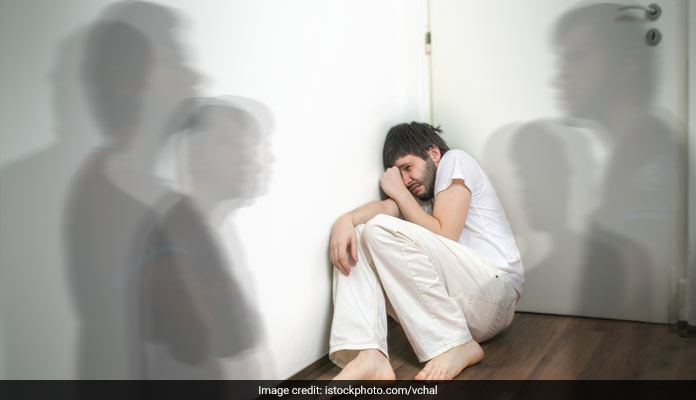Schizophrenia
What is it?
Schizophrenia is a complex mental illness in which a person loses the ability to think, feel or behave normally. The patient seems to “live in a distorted world”, and is usually unaware of his illness. The disorder is more commonly seen in men than women. Men tend to show the symptoms in their late teens and early twenties whereas in women, the illness is manifested later during their thirties. Nearly 6-7 million Indians suffer from this disorder, which is now believed to be a brain disorder rather than a purely psychological illness.
What are the causes?
The cause of this disorder is not known. It may be caused by a chemical defect in the brain. Imbalance of neuro-transmittors glutamate and dopamine has been associated with the disorder. Some studies also ahow physical abnormalities in the brain structure of schizophrenics with enlargement of fluid-filled cavities (ventricles), in the interior of the brain and decreased size of certain brain regions.There may also be a genetic basis to the illness as children having a schizophrenic parent have a 10% more chance of developing the disorder. Recent research suggests that the disorder results when neurons or nerve cells form inappropriate connections during foetal development. These errors may lie dormant until puberty, when changes in the brain that occur normally during this period interact adversely with the faulty connections.
How is the diagnosis made?
The onset of the disorder is not sudden and the symptoms not very discreet, so it can be easily ignored in the initial stages, or be confused with some other illness. However there are some common benchmarks for the disorder: Loss of interest in activities and social withdrawal – the person loses interest in work and academic output decreases considerably. He is unable to concentrate, is irritable, and looks preoccupied most of the time. This is usually in combination with disturbed eating and sleeping patterns and the individual begins to shun company of any sort. Delusions – most persons with schizophrenia believe in something that may be totally untrue. These false beliefs make them anxious, nervous or frightened. For instance, a schizophrenic may believe that the world is out to kill him, or he may have delusions of grandeur wherein he may believe himself to be a very important person of the world. These beliefs are not open to any suggestion or reason for the patient. Hallucinations – unlike delusions, hallucinations are not connected with events in the real world. There is no stimulus present for the individual to behave in a particular manner. For example, the person may hear voices when nobody is speaking, or he may carry out a conversation with an imaginary companion. Disinterest in personal hygiene – in later stages, the patient refuses to bathe or keep himself clean, loses interest in his physical appearance and his surroundings. Inability to express emotions – persons with the disorder often show a “blunt” facial expression, speak in a monotonous voice and appear extremely apathetic. They do not show appropriate expressions, which might become another cause for their social withdrawal.
What is the treatment?
Treatment approach to schizophrenia is long term and multi-pronged. It comprises not only medical intervention, but also psychological, behavioural and social rehabilitation. Medical treatment – Antipsychotic medications like Clozapine, Risperidone and Olanzapine are prescribed in most cases of the disorder. The dosage of medication differs from one patient to another. Sometimes ECT (Electro Convulsive Therapy) or shock treatment is advised during a schizophrenic episode, but usually in conjunction with the administration of drugs. These drugs may induce some side effects like drowsiness, restlessness, muscle spasms, dry mouth or blurring of vision. Psychotherapy sessions are helpful in treatment along with drugs. During these sessions by a psychiatrist, the patient can talk about his feelings and experiences within his world. This can help him in understanding his own problems and also distinguish between the real and the distorted world. Family counselling sessions can also help the family deal better with the individual and his problem. Recently group therapy sessions have started in India, which enable an individual to interact with others and thus regain his confidence.
What is the prognosis?
In some cases, total recovery is possible, but in most cases, regular check-ups are necessary to ascertain the position of the patient. With a combination of drugs and individual rehabilitation, most individuals are able to regain normal functioning, but if the medical treatment is discontinued without consulting the doctor or it becomes irregular, the attacks can recur. Thus even with apparent total recovery, periodic check-ups with the psychiatrist are advised.
Schizophrenia News More News
- Magnetic Pulses May Treat Schizophrenics Who 'Hear Voices'
- New Drug For Treating Schizophrenia Approved
- First-time fathers' age and schizophrenia risk
- Low vitamin D linked to schizophrenia
- Brain activity may predict schizophrenia
- Marijuana linked to schizophrenia
- Schizophrenia can be traced through genes
- Music eases schizophrenia symptoms
- Epilepsy increases schizophrenia risk
FAQ Related to Schizophrenia
- Do sagging breasts indicate past physical relations?
- I am suffering from procrastination, what should I do?
- Do sagging breasts indicate past physical relations?
- Do sagging breasts indicate past physical relations?
- Why has my father started talking irrelevantly?
- Am I suffering from obsessive compulsive disorder?
................... Advertisement ...................
................... Advertisement ...................
................... Advertisement ...................
................... Advertisement ...................







_636307919644516272.jpg)

















